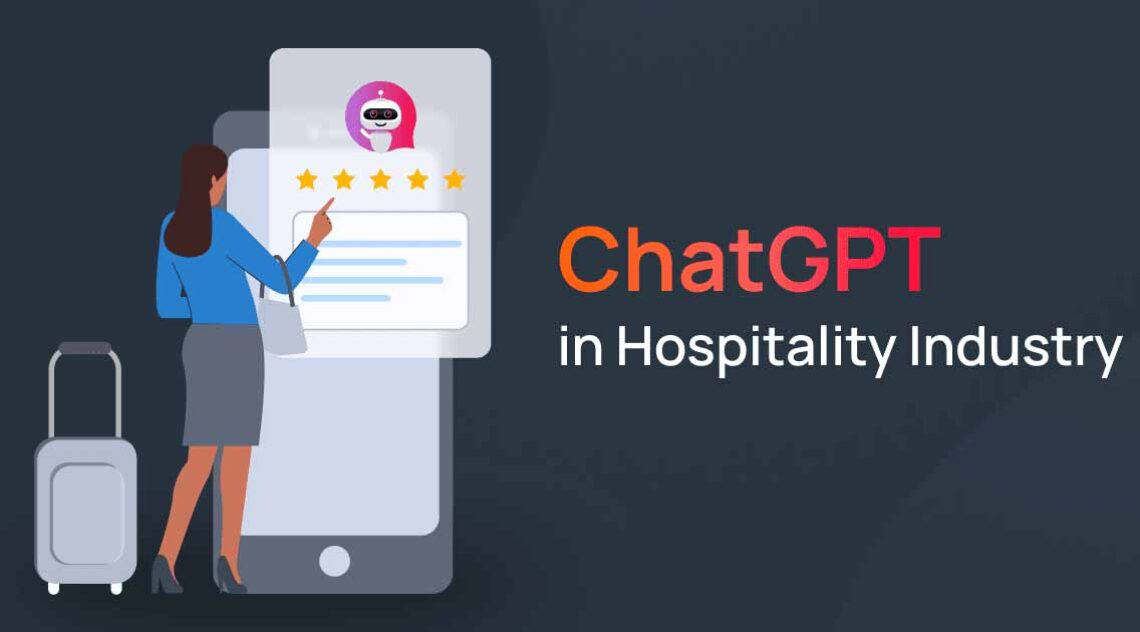
The hospitality industry is all about delivering exceptional customer experiences. From hotels to restaurants and everything in between, providing top-notch service is the key to success. In today’s digital age, leveraging advanced technology can enhance these experiences. One such technology that has been making waves in the industry is ChatGPT, a powerful language model developed by OpenAI. In this article, we will delve into how businesses in the hospitality sector can use the potential of ChatGPT to elevate customer service, streamline operations, and create memorable guest interactions.
How can hospitality businesses use ChatGPT?
ChatGPT can be an invaluable asset for businesses in the hospitality sector. Here are some key ways it can be used:
Customer support: ChatGPT can serve 24/7, assisting guests with inquiries and requests. Whether helping guests book a room or providing information about local attractions, ChatGPT can handle these tasks promptly and efficiently. This improves the guest experience and reduces the workload on human staff, allowing them to focus on more complex tasks.
Booking and reservations: ChatGPT can facilitate online bookings and reservations. Guests can chat with the bot to check room availability, make restaurant reservations, or plan events. By streamlining these processes, businesses can ensure they capture more bookings, reducing the risk of overbooking or double-booking.
Personalized recommendations: ChatGPT can analyze guest preferences and previous interactions to provide personalized recommendations.
Language support: In the hospitality industry, catering to an international clientele is common. ChatGPT’s multilingual capabilities make it an excellent tool for breaking language barriers. Guests can communicate in their preferred language, and the chatbot can respond in real-time, creating a more inclusive and welcoming environment.
Feedback and surveys: After a guest’s stay or experience, ChatGPT can gather feedback and conduct surveys. This information can assist companies in identifying areas where they can make enhancements, enabling them to consistently improve their services and offerings.
Implementing ChatGPT in hospitality businesses
Effective implementation of ChatGPT in a hospitality business involves meticulous planning and execution. Here’s a guide to achieving this:
Choose the right platform: There are several chatbot development platforms available. Businesses should select a platform that aligns with their needs, ensuring it supports integration with their existing systems, websites, and social media channels.
Customize the chatbot: Tailor the chatbot to match the brand’s tone and style. Personalize it with greetings, phrases, and information specific to the business, making the interaction with customers more inviting and relevant.
Training the chatbot: ChatGPT can be trained with specific knowledge related to the hospitality industry. Provide it with information about room types, amenities, services, local attractions, and any other relevant data. This ensures the chatbot can provide accurate and helpful responses to guest inquiries.
Integration with booking systems: To enable the chatbot to assist with reservations and bookings, integrate it with the business’s booking and reservation systems. This integration ensures that real-time data is available to the chatbot, reducing the risk of errors.
Ongoing monitoring and maintenance: Implementing ChatGPT is not a one-time task. Regularly monitor the chatbot’s performance, review guest interactions, and make necessary adjustments to improve its effectiveness.
Benefits of ChatGPT in hospitality businesses
The implementation of ChatGPT in hospitality businesses presents a multitude of benefits:
Enhanced customer service: ChatGPT immediately assists guests, promptly addressing their questions and requests, leading to higher guest satisfaction and repeat business.
Cost savings: With ChatGPT handling routine inquiries and tasks, businesses can reduce labor costs. Human staff can be allocated to more complex and value-added roles, optimizing the use of resources.
Improved efficiency: ChatGPT provides 24/7 support, catering to global businesses with customers in different time zones.
Data insights: ChatGPT collects valuable data about guest preferences, behaviors, and feedback. This information can be analyzed to make data-driven decisions, customize services, and create targeted marketing campaigns.
Consistency: ChatGPT ensures that every guest interaction adheres to the business’s established standards and policies. This consistency in service delivery is critical for maintaining a strong brand reputation.
Scalability: As business grows, ChatGPT can scale effortlessly to accommodate a higher volume of inquiries and requests without hiring more staff.
Conclusion
The hospitality industry highly values customer service, and ChatGPT is an innovative technology that can transform the guest experience. With the ongoing transition into the digital era, technology is poised to have a considerable influence on the hospitality sector. ChatGPT is just one example of how innovation can transform the sector, making it more efficient, customer-focused, and competitive. With its versatility and ability to provide instant responses, ChatGPT is a valuable tool that every hospitality business should consider incorporating. The future of hospitality is just a chat away!